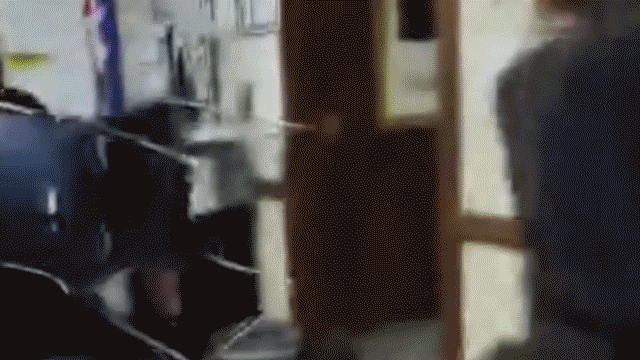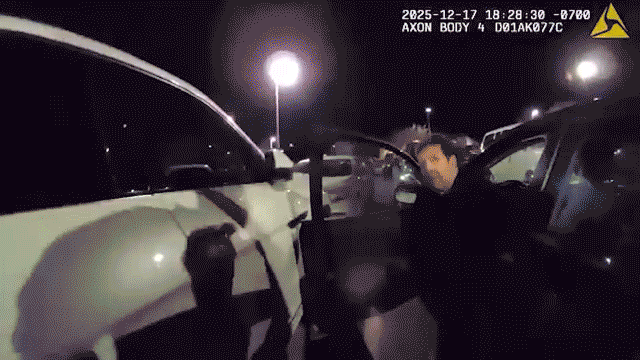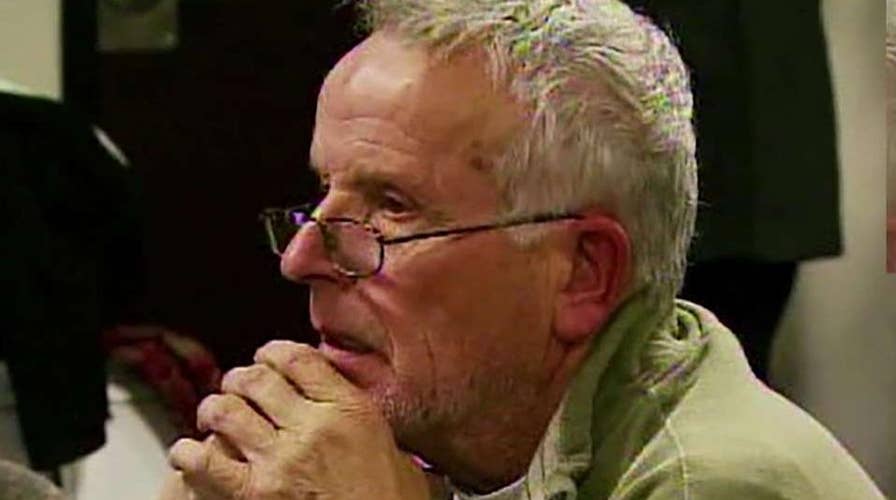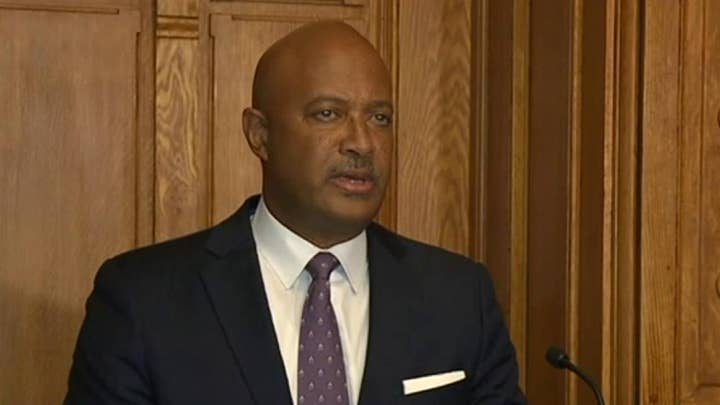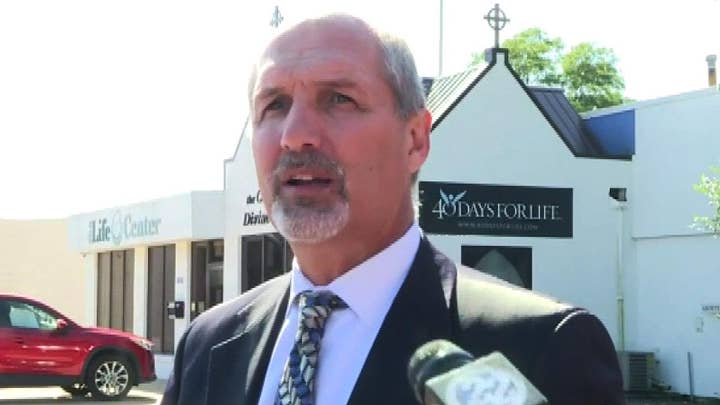Indiana begins process to return fetal remains following gruesome discovery
More than 2,000 fetal remains were discovered in the garage of a recently-deceased abortion doctor; Matt Finn reports from South Bend.
Medical records for thousands of women who had abortions performed by a doctor who hoarded 2,246 fetal remains at his home in Illinois were found abandoned at his medical clinics in Indiana, authorities said Friday.
Indiana Attorney General Curtis Hill expressed concern at the enormous amount of records he says were improperly kept at each of the three clinics run by Dr. Ulrich Klopfer, who died days before family members discovered the medically preserved remains in his garage on Sept. 12.
"He certainly was problematic in life and as it turns out, continues to present problems in his death," Hill said told reporters Friday.

This September 2014 file photo shows Ulrich Klopfer. (South Bend Tribune via AP, File)
Hill described Klopfer as "one of the most notorious abortionists in the history of Indiana' who "had a record of deplorable conditions and violations of regulatory controls" at his clinics in Fort Wayne, South Bend and Gary.
Hill said that authorities are probing "the discarding or abandonment of confidential records and the appropriateness of that process."
Indiana's Medical Licensing Board suspended Klopfer's medical license in 2016 after finding numerous violations, including a failure to ensure that qualified staff were present when patients received or recovered from medications given before and during abortions.
HIll said that that 10-year-old patient of Klopfer's was raped by her uncle and the doctor failed to adequately document her abortion. Authorities are now investigating, among other issues, whether the fetal remains found at Klopfer's home along with the recently uncovered medical records could help to nab the child's rapist.
The attorney general said the incident is just one example of how Klopfer may have breached the "high degree of expectation of privacy and confidentiality " that his patients expected.
"Part of the responsibility of the Attorney General's office is to secure abandoned or discarded medical records to ensure that the confidentiality of those records is maintained," Hill said, adding that the records are currently in the possession of his office until they can determine what to do with them in accordance with state law.
Hill did not mention the exact number of records uncovered but said that no additional fetal remains were found at any of the clinics.
"We checked a couple of different areas that may be appropriate or may be places where remains may have been buried," St. Joseph County Prosecutor Ken Cotter said at a press conference Thursday. "There were none. It is very clear that that has been a vacant lot."
Illinois authorities seized more than 70 cardboard boxes containing fetal remains from Klopfer's home last week. The remains were placed inside small, sealed plastic bags with formalin, a chemical used to preserve biological material.
The remains are in the process of being transferred from Illinois to the Indiana State Attorney General's office for further investigation.
Authorities said all of the fetuses are linked to patients who had abortions at Klopfer's Indiana clinics between 2000 to 2002 and Hill confirmed Friday that "all 2,246 fetal remains do come from the state of Indiana."

Officers from the Fort Wayne Police Department search the building that once housed an abortion clinic owned by Dr. Ulrich Klopfer. (Eric Ginnard/The Herald-News via AP)
The state attorney general's office said they have already started receiving "calls concerning the fate of these remains" from mothers who may have been patients of Klopfer in the three-year-window corresponding with the uncovered fetal remains.
"We're very sensitive to that issue," Hill said. "We are going to bring our babies home and make sure they are treated with the proper dignity and respect" they deserve.
"This is not a situation that by any stretch we want to further victimize anyone," he added. "I think it's deplorable now that folks who went through this procedure, no matter how you feel about the procedure, have had to relive this moment with an understanding that this type of dangling issue is still out there. The fact that you have an aborted fetus that did not have any type of proper closure. I think that's got to be troubling to anyone whose gone through the procedure and anyone who just respects life as it is."
Indiana officials will also be tasked with determining how to appropriately dispose of the thousands of fetuses. Hill said burial and cremation are both possibilities.
Investigators are also working to determine a motive and identify other violations that may have occurred.
CLICK HERE FOR THE FOX NEWS APP
"Transporting biohazardous material across state lines is a concern from a health standpoint," Hill said.
Authorities are also trying to uncover "any information that suggests that any other licensed professional had a hand in the transference or delivery of these fetal remains across state lines or any other purposes."
"That's what we're trying to determine — how this happened, who was involved and what if anything we can do about it. And going forward, what can we do to prevent these types of things from happening in the future," he said.







